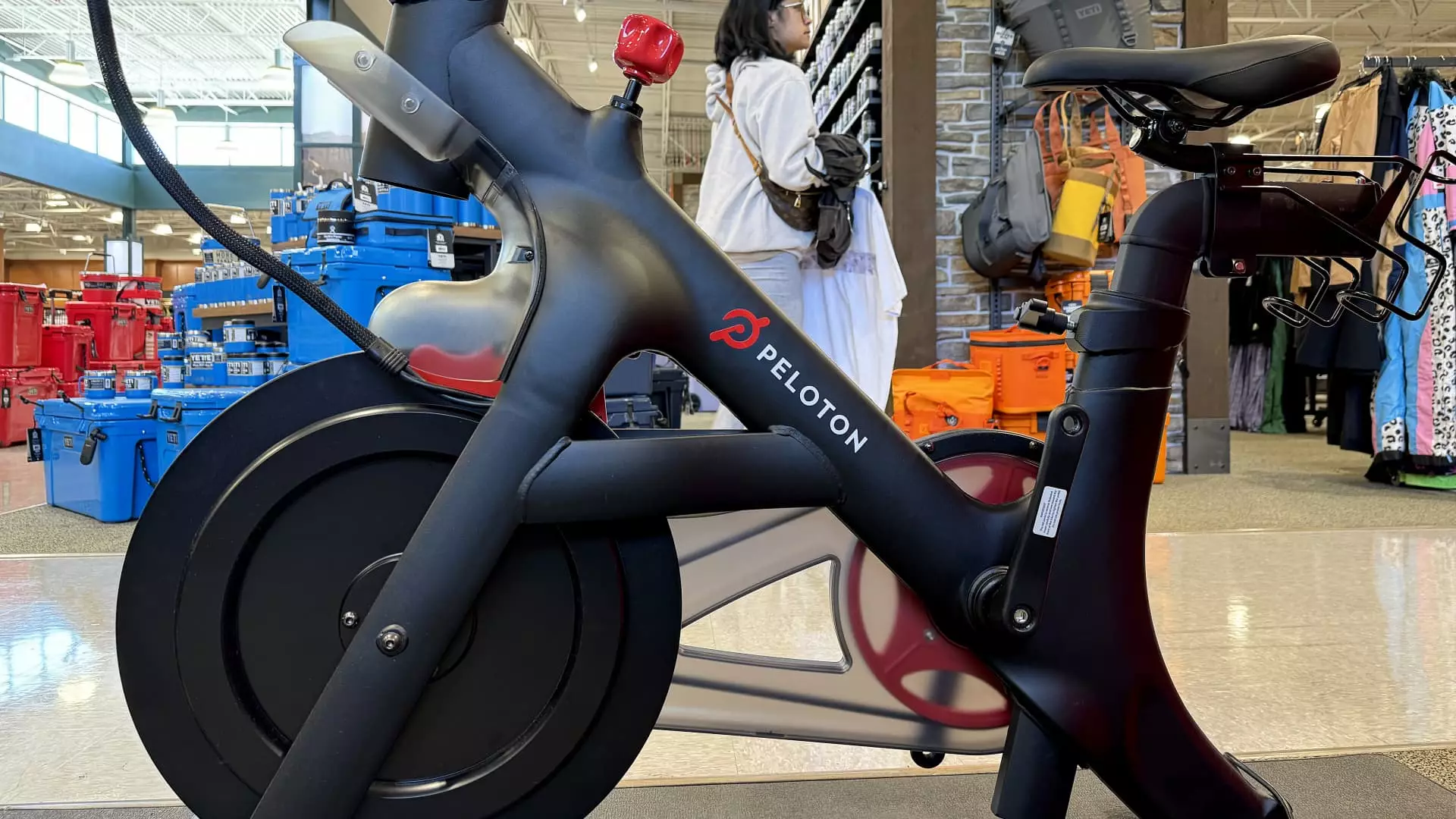In an audacious move, Peloton has unveiled its own resale marketplace, aptly named “Repowered.” This initiative isn’t merely an attempt to resuscitate dormant bikes and treadmills that have become glorified clothing racks; it’s a strategic pivot aimed at breathing new life into a faltering empire. As Peloton grapples with a shift in consumer behavior post-lockdown, the company is leveraging the growing appetite for sustainable practices and the resale economy. By creating a platform that encourages users to sell their used equipment, Peloton is not only tapping into a burgeoning market but also reinforcing its community engagement—a hallmark of any successful fitness brand.
The rise of the resale market is not coincidental. As people became accustomed to buying and selling online during the pandemic, the cultural shift towards sustainability gained momentum. Consumers are becoming increasingly aware of how their purchases impact the planet, leading to a surge in demand for second-hand products. Peloton is all too aware of this shift; by launching Repowered, they are not just accommodating this trend but actively championing it. It’s as if Peloton has spotted an invaluable opportunity amidst challenges, choosing not to wallow in past failures, but rather to redefine its narrative and align with the values of its demographic.
The Role of Technology in Resale
At the heart of Repowered is an innovative generative AI tool that aids sellers in pricing their listings based on the item’s age and condition—an intriguing enhancement to the tedious price-setting process. However, the reliance on AI opens a dialogue about the authenticity of valuing personal belongings. While technology can assist in determining a fair market price, it can also undermine the personal sentiment attached to these items. After all, no algorithm can truly gauge the emotional journey a user may have experienced with their Peloton bike. Hence, while it may expedite sales, it may also strip away the personal connection inherent in the transaction.
One must wonder whether the benefits outweigh the potential pitfalls. Will this technology foster a genuine marketplace, or will it contribute to creating a commodified landscape where profits trump personal stories? Consumer behavior suggests a yearning for authenticity and shared experiences; every person’s fitness journey is unique. Therefore, while AI can suggest a price, it cannot replace the human experience that binds these trades.
A Competitive Landscape
Peloton’s foray into the resale market positions it in direct competition not just with platforms like Facebook Marketplace but also with niche startups like Trade My Stuff. While Trade My Stuff has established itself as a go-to for second-hand equipment, Peloton’s strategy has the inherent advantage of brand loyalty. Under normal circumstances, a brand of Peloton’s stature would easily eclipse smaller competitors by virtue of its name alone.
However, there lies a potential trap; the challenge for Peloton will be to ensure that Repowered doesn’t cannibalize its core offering—subscription revenue. The financial success of Peloton hinges significantly on monthly subscriptions, often neglected by owners who purchase equipment second-hand. If Repowered attracts too many users who buy only through this marketplace, it could adversely impact the very subscriptions that Peloton relies on for revenue.
Member-Centric Innovations
In embracing a community-driven approach, Peloton also demonstrates an understanding of the shifting dynamics of fitness consumption. By allowing sellers to earn 70% of the sales price while simultaneously attracting new buyers with reduced activation fees, the initiative positions itself as a win-win for both parties. It reflects an evolved vision that places user needs at the forefront—an essential strategy in today’s customer-centric market.
Moreover, offering discounts toward future purchases can potentially encourage a cycle of loyalty that benefits Peloton in the long run. Consumers who feel they are getting value back from their initial investment are more likely to remain engaged with the brand. This model echoes the principles of a circular economy, where the focus is on sustainable consumption and waste reduction—concepts that resonate in today’s social climate.
In essence, Peloton’s Repowered is a bold endeavor that blends innovation and ambition to reclaim lost ground. While risks loom on the horizon, particularly regarding competition and consumer behavior, the sheer potential of this marketplace may well be the lifeline Peloton needs as it strives to redefine its identity in an evolving fitness industry landscape.


Leave a Reply